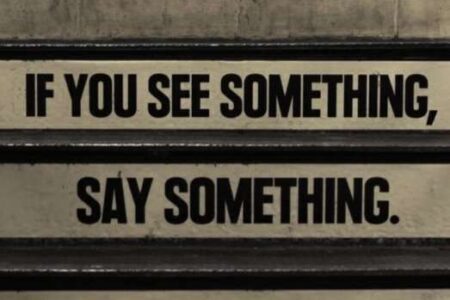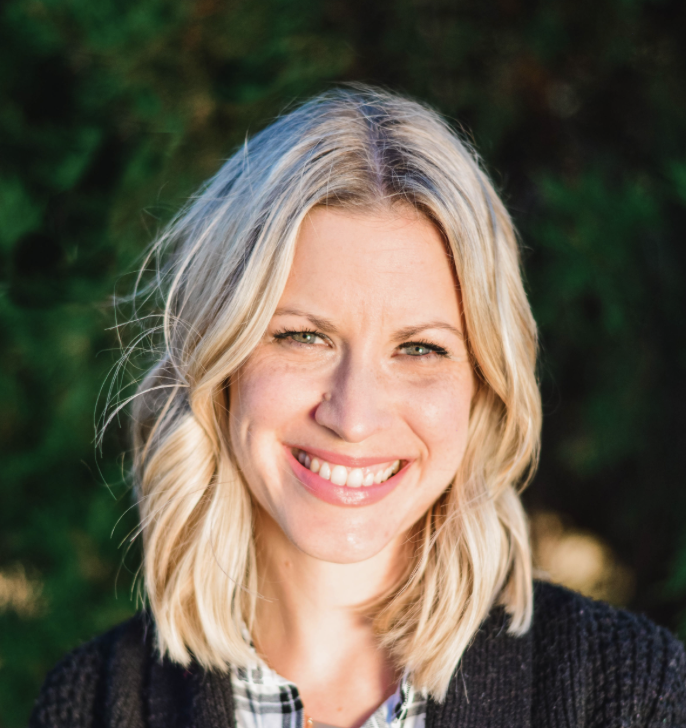There is a common phrase in our culture that says: “if you see something, say something.” The implication is that we have a moral compass guiding us. If we see wrong, we tell someone—or tell the person committing the offense. If we see a person in need, we get help—or help them. Common grace drives even the unbeliever to sometimes do the right thing when they see wrongdoing. This short article will help you learn to confront racism.
For the Christian, we have more than common grace. We have the Holy Spirit guiding us, convicting us, and pointing us towards the truth (John 16:8). But we also are still sinners, so even though we know the right thing to do or say, we often don’t (Romans 7).
I’ve been really convicted the last few months about the times I have been silent when I should have spoken up. I can think of two instances in particular where I was having a conversation with a brother or sister and they made racially insensitive comments and I said nothing.
Nothing.
I didn’t laugh. I didn’t nod. I didn’t even acknowledge the statement. I just said nothing. I could attribute that to shock, but when I really dig down into my motives, I said nothing because I was afraid. I know this because I still remember the feeling of anxiety rising in my throat as the comment was made. My conscience told me it was wrong. My desire for comfort told me to stay quiet.
These conversations happened years ago, so it’s long past when I can go back to say something. But it has been on my mind a lot as I write publicly about race. It’s far easier to do the public work to speak out against injustice than it is to do the personal work of talking to our flesh and blood friends (at least it is for me). Hashtags, social media posts, and moral outrage can be useful, but it is nullified if I’m not doing the work in my own sphere of influence. In fact, the longer I engage in this work of racial justice, listening and learning from others, the more I understand that the most effective work is often done within our communities, not in the public sphere. The public sphere is important, but it is an outworking of the private work we do. It can’t be a substitute.
I’ve been reminded of something Andy Crouch says in his book, Culturemaking, where he talks about local, grassroots transformation is the most effective. We often want big movements to change things, but change often happens in the dinner table conversations among friends. What Crouch is getting at is the notion of relational capital. Our relationships with people allow us to take risks on having hard conversations, and as a result makes them better prepared to hear us when we talk to them about things like racial insensitivity. I’ve built up the trust with them. I’ve spent time with them. I know them. And as a result, I can also speak honestly with them. These types of conversations have more potential for transformation than reading an article online or seeing a social media post about racism. Very few people have their minds changed by Twitter, but they may have their minds changed over coffee with a caring friend.
So I want my writing to be an extension of the private conversations I am having (which I am). I just grieve the failed ones I didn’t have. I grieve the sin that kept me from saying something. I grieve the opportunities for transformation that were lost because I chose comfort over confrontation. If I could have been transformed to fight my fear of man, perhaps they could have been transformed in their understanding of how their words were perceived.
But fear of man keeps us from the private work. It is love of comfort that keeps me from speaking up when I hear something. It is a desire to be liked that prevents me from asking more questions. It is is the enemy’s greatest tactic in the work towards racial justice. If he only keeps us speaking publicly, but we never once engage privately then we have lost the battle and started a war. And I’m the first to line up and call myself “guilty as charged.”
But there is hope! If you have found yourself shrinking back from saying something I hope this post helps you see that you aren’t the only one. These are fraught times, and the desire for comfort and being liked is pervasive. First, admit that you struggle with fear of man. We can’t find hope and forgiveness if we don’t first see that our failure to speak stems from our own sinful inclinations. Second, trust that Christ has forgiven you and by the power of the Holy Spirit equips you for every good work, even the work of confronting bias and racial insensitivity. Third, keep checking your heart and your motives. There is a danger in swinging the pendulum too far in the other direction once we are aware of our sin. James says that a Christian must be “quick to listen and slow to speak” (James 1:9), so there is a time for speaking and a time for listening and understanding a person. As you fight fear of man, run to Jesus, and rely on the Holy Spirit to sustain you, you will grow in your ability to discern when and how conversations need to be had.
I can’t go back and change my response in those previous conversations. And that grieves me to this day. But I can resolve to do better going forward with the Spirit’s help. I am weak, but he is strong.
Prayer Requests:
- Ask God to reveal times where you have been silent when you should have spoken up. Confess those times, run to Jesus for forgiveness, and then ask for more grace to respond differently the next time.
- Ask God to give you discernment in conversations with friends.
- Ask God to make you faithful in public and in private as you seek racial unity.












